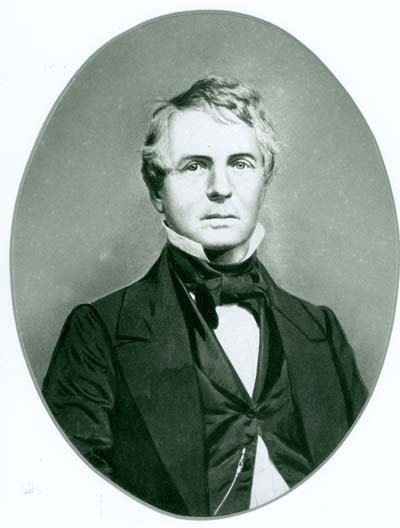July 23, 1849: Gov. John Dana signs a bill permitting the incorporation of Augusta, Maine’s capital, as a city. At a special meeting held the following Dec. 31, voters approve the incorporation, 586-196. City government and its departments are organized in 1850.

In the first mayoral election, candidates run on a partisan basis, unlike the nonpartisan system used in the 20th and 21st centuries. The Whigs assume they will claim the mayor’s job, especially because the opposition to Augusta’s incorporation as a city came largely from Democrats.
The Democrats say the city at large should decide the matter, and they propose Reuel Williams, a former U.S. senator, as mayor. The Whigs agree he would make a fine choice, but they doubt he would be willing to do it. They schedule a meeting to nominate their own candidate.
On Feb. 2, a large, ostensibly nonpartisan meeting nominates Williams by acclamation. He declines the honor. Then the gathering nominates the Rev. William Drew by acclamation, and he accepts.
The Whigs, dissatisfied, nominate George Morton, who declines. The Whigs then turn to John Pettingill, who accepts. The Democrats hold their own meeting and put up Alfred Redington (1802-1875) as a candidate.
In a three-way contest held March 11, 1850, no candidate achieves a majority, which is needed to win. Drew gets 517 votes; Pettingill, 430; and Redington, 291. Pettingill withdraws. The Whigs nominate Thomas Little, and another vote takes place March 21. Drew, who perhaps peaked too early, gets 416 votes; Redington, 440; and Little, 275. Little then withdraws.
The final showdown pits Drew, one of the organizers of the Feb. 2 meeting, against his right-hand man, Redington. Redington wins, 668-582, showing that a city of 8,225 inhabitants, as recorded in the 1850 census, can have politics as complicated as that of a major metropolis.
Redington, a Vassalboro native, arrived in Augusta in 1822. He made a fortune in real estate speculation linked to the construction of the Kennebec Dam – which, later known as the Edwards Dam, is demolished in 1999 – then lost his wealth when in 1840 both an economic bubble and the dam burst, the latter because of a flood. Redington organized the dam’s repair and later became the agent for the company that owned the dam’s water power. He also serves as Maine’s adjutant general.
The Democrats renominate Redington for mayor in 1851, and he defeats the Whig candidate, James W. North (1810-1882), who, nearly two decades later, writes a history of Augusta. That detailed book chronicles, among other things, North’s and Redington’s part in that history.
The following year, on the heels of the gold rush, Redington moves to Sacramento, California, where he becomes a steamboat company’s agent and builds flour mills. He never looks back.
Today Augusta is Maine’s 13th most populous municipality, based on 2010 census figures. It is also the third least populous of America’s state capitals, having a larger population than only Montpelier, Vermont, the smallest; and Pierre, South Dakota.
Presented by:

Joseph Owen is an author, retired newspaper editor and board member of the Kennebec Historical Society. Owen’s book, “This Day in Maine,” can be ordered at islandportpress.com. To get a signed copy use promo code signedbyjoe at checkout. Joe can be contacted at: jowen@mainetoday.com.
Comments are not available on this story.
Send questions/comments to the editors.


